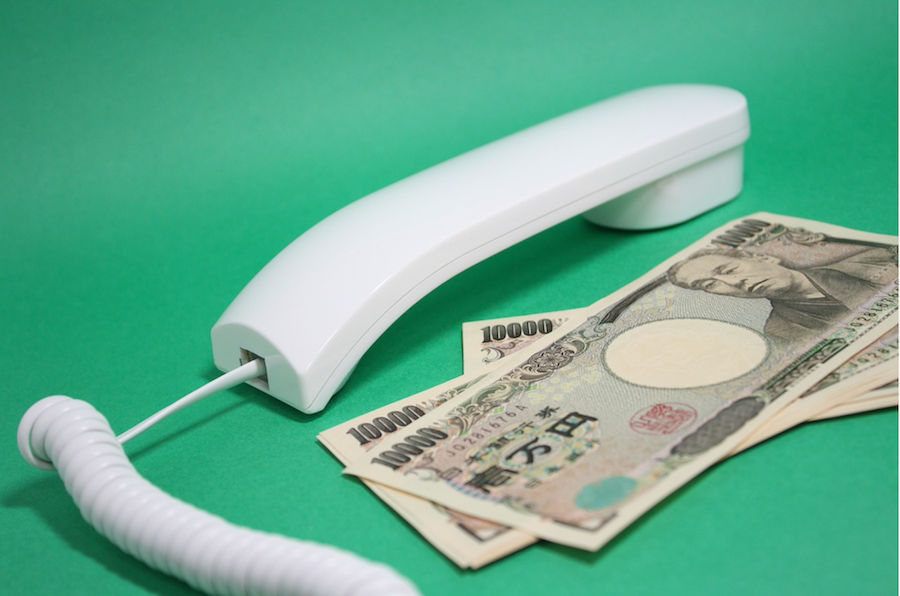Unraveling the Mysteries of Bank Transfers with a Credit Card: What You Need to Know
GPT_Global - 2024-09-28 07:30:08.0 61
Are there any age restrictions for making bank transfers with a credit card?
When it comes to sending money through a bank transfer, there are a few things you need to keep in mind, including any age restrictions that may apply. In general, individuals can make bank transfers with a credit card as soon as they turn 18 years old. This is because most financial institutions require account holders to be of legal age in order to use their services. However, there may be some exceptions to this rule depending on the country and specific bank policies.
In certain cases, minors may be able to make bank transfers with a credit card under adult supervision or with a joint account. This means that a parent or guardian would need to be present during the transaction or have their name included on the account. Additionally, some banks may offer special accounts for minors that allow them to make bank transfers with a credit card as long as a parent or guardian co-signs for the account.
It's important to note that even if a minor is able to make a bank transfer with a credit card, they may still be subject to the same fees and limits as an adult account holder. This includes potential foreign transaction fees and daily transfer limits set by the bank. It's always best to check with your specific bank to fully understand their policies and any potential restrictions.
In conclusion, while the general age requirement for making bank transfers with a credit card is 18 years old, there may be some exceptions and variations depending on the country and bank policies. It's always recommended to do your research and consult with your bank to ensure that you are following all necessary guidelines when it comes to making a bank transfer with a credit card.

Can I use a store credit card for bank transfers?
Bank transfers are essential for sending money between bank accounts, whether it's for personal or business purposes. However, not everyone has a traditional bank account or access to other remittance services. If you're looking for an alternative way to transfer money, you may have considered using a store credit card. But is it possible to use a store credit card for bank transfers? Let's find out.
First, it's important to understand that store credit cards are meant for making purchases at specific retailers. They are not designed for bank transfers, and most credit card companies do not support this feature. So, if you're thinking of using your store credit card to send money to another bank account, you may be out of luck.
Furthermore, even if your credit card issuer allows bank transfers, it may come with hefty fees and high-interest rates. This can make your transfer significantly more expensive than using a traditional remittance service or a bank account. Plus, some credit card companies may also charge a cash advance fee if the transfer is treated as a cash transaction.
If you're determined to use your store credit card for bank transfers, you can try contacting your credit card issuer or the bank you want to transfer money to. Some credit card companies may have partnerships with specific banks that allow for this type of transfer, but these options are limited.
Ultimately, using a store credit card for bank transfers is not a viable option and is not recommended. The fees and limitations involved make it a costly and inconvenient method compared to other remittance services. It's best to stick to traditional methods like wire transfers, online remittance services, or even mobile payment apps for convenient and secure bank transfers.
In conclusion, although store credit cards offer many perks and benefits, they are not ideal for bank transfers. It's best to stick to traditional remittance services or use a bank account for transferring money between accounts. If you're in need of a credit card specifically for bank transfers, consider getting a prepaid debit card that allows for direct deposit or a credit card with a lower interest rate and no cash advance fees.
What is the process for disputing a bank transfer made with a credit card?
Disputing a bank transfer made with a credit card can be a stressful and frustrating experience. However, if you find yourself in a situation where you need to dispute a transaction, there are steps you can take to resolve the issue. Here is a simple process for disputing a bank transfer made with a credit card.
The first step is to contact your bank or credit card company as soon as possible. It is important to act quickly in order to increase your chances of successfully disputing the transaction. Most banks have a specific time frame for disputing transactions, so make sure to check with your bank on their specific policies.
Next, gather all relevant information related to the transaction. This includes any receipts, confirmation numbers, and details about the purchase. It is important to have all of this information on hand when speaking with your bank or credit card company.
Once you have all of the necessary information, call your bank or credit card company's customer service line. Explain the situation and provide them with the details of the disputed transaction. They may ask you to fill out a dispute form or provide additional documentation.
If your initial attempt to dispute the transaction is unsuccessful, you may need to escalate the issue to a higher level. This could involve speaking with a supervisor or filing a formal dispute with your bank or credit card company. Make sure to keep records of all communication and follow up regularly until the issue is resolved.
It is also important to check your account regularly to ensure that the disputed amount has been refunded. If not, you may need to contact your bank or credit card company again to request a status update on your dispute.
Finally, be patient and remain persistent. Disputing a transaction can take time and may require multiple attempts to resolve. However, by following these steps and providing all necessary information, you increase your chances of successfully disputing a bank transfer made with a credit card.
In conclusion, if you ever find yourself needing to dispute a bank transfer made with a credit card, remember to act quickly, gather all necessary information, and remain persistent. By following these steps, you can successfully resolve any issues and protect your finances.
Can I transfer funds from a credit card to an investment account via bank transfer?
Remittance business is a popular method for transferring funds from one country to another. Many people rely on this service to send money to their loved ones or for business purposes. However, there may be times when you need to transfer funds from your credit card to an investment account. This can be done through a bank transfer.
A bank transfer involves electronically moving funds from one bank account to another. To transfer funds from your credit card to an investment account, you will need to link both accounts through your bank. Once the accounts are linked, you can initiate a transfer request through your bank's online banking platform or by visiting a physical branch.
One thing to keep in mind is that this type of transfer may incur additional fees. Some banks charge a fee for transferring funds from a credit card to an investment account, and these fees can vary depending on the amount being transferred. It's essential to check with your bank beforehand to understand the associated costs and make an informed decision.
Another crucial factor to consider is the interest rates on your credit card. If you use your credit card to transfer funds to an investment account, the balance on your credit card will increase. This means you will have to pay interest on the amount transferred until it is fully paid off. Therefore, it's best to transfer only the necessary amount and pay it back as soon as possible to avoid high-interest charges.
It's important to note that not all banks allow transfers from credit cards to investment accounts. Some may only allow transfers from checking or savings accounts. Therefore, if you're looking to transfer funds from a credit card, it's essential to do your research and find a bank that offers this service.
In conclusion, transferring funds from a credit card to an investment account via bank transfer is possible with the right bank. However, it's crucial to consider any fees and interest charges associated with this type of transfer. It's always wise to consult with your bank and plan accordingly before initiating a transfer to ensure a smooth and cost-effective process.
Are there any limits on the number of bank transfers I can make with a credit card per day?
When it comes to remittance through credit cards, many people may wonder if there are any limits on the number of bank transfers that can be made per day. The answer to this question is not a simple yes or no, as there are several factors that can affect the limit.
Firstly, the limit on bank transfers using a credit card may depend on the bank or financial institution you are using. Each bank has its own policies and guidelines when it comes to credit card transactions, including the number of bank transfers allowed per day. Some banks may have a daily limit while others may not have any restrictions at all.
Another factor that can affect the limit is the type of credit card you have. Premium or elite credit cards often come with higher spending limits compared to regular credit cards. If you have a premium credit card, you may be able to make more bank transfers per day without exceeding the limit.
Moreover, your credit limit on the card may also play a role in determining the number of bank transfers you can make in a day. If you have already reached your credit limit for the day, you may not be able to make any more transactions until you pay off some of your balance.
It is important to note that exceeding the limit on bank transfers per day may result in additional fees or penalties from your bank or credit card company. It is always best to check with your bank or read through your credit card agreement to understand the limits and potential consequences of exceeding them.
In conclusion, there may be limits on the number of bank transfers you can make with a credit card per day, but these limits may vary depending on the bank, type of credit card, and your credit limit. It is always advisable to stay within the designated limit to avoid any unnecessary fees or complications in your remittance transactions.
Do I need to have a certain credit score to make bank transfers with a credit card?
Remittance businesses are becoming increasingly popular, as they allow people to easily transfer money from one location to another. One question that many people have when considering using a remittance service is whether or not they need to have a certain credit score to make bank transfers with a credit card. The simple answer is no, you do not need a specific credit score to use a credit card for bank transfers through a remittance business.
Remittance businesses typically accept a variety of payment methods, including credit cards. This means that as long as your credit card is valid and has enough available credit, you can use it to make a bank transfer through a remittance service. Your credit score does not play a role in this process.
However, it is important to note that some remittance businesses may have their own requirements for credit card usage. For example, they may only accept certain types of credit cards or may have a minimum transaction amount. These requirements are set by the individual remittance business and have nothing to do with your credit score.
Additionally, using a credit card for bank transfers may come with extra fees or higher exchange rates compared to other payment methods. It is always a good idea to compare the fees and rates of different remittance businesses before making a transfer to ensure you are getting the best deal.
In conclusion, having a certain credit score is not a requirement for making bank transfers with a credit card through a remittance business. As long as your credit card is accepted by the remittance service and has enough available credit, you can use it to transfer money to another location. However, it is important to consider any additional fees or rates associated with using a credit card for remittance transactions.
Can I cancel a bank transfer made with a credit card before it is processed?
Bank transfers are a convenient and secure way to send money to another person or business, but what if you need to cancel one that was made with a credit card? The short answer is yes, you can cancel a bank transfer made with a credit card before it is processed. However, there are some important things to keep in mind.
First, it's important to act quickly. Once a bank transfer has been initiated, the funds are usually withdrawn from your account immediately. This means you only have a small window of time to cancel the transfer before it is processed. It's best to contact your bank or credit card issuer as soon as possible if you need to cancel a transfer.
Another important factor to consider is the reason for the cancellation. If you are canceling the transfer because you made a mistake, such as entering the wrong amount or recipient information, your bank or credit card issuer may be able to help you correct the error. However, if you are canceling the transfer due to fraudulent activity or unauthorized access to your account, it's important to report this to your bank or credit card issuer immediately to prevent further unauthorized transfers.
Keep in mind that cancelling a bank transfer made with a credit card may not always be possible. Some banks and credit card issuers have policies in place that do not allow cancellations after a certain amount of time has passed. Additionally, if the transfer has already been processed and the funds have been deposited into the recipient's account, it may not be possible to reverse the transaction. In these cases, you may need to work with the recipient to request a refund.
In conclusion, it is possible to cancel a bank transfer made with a credit card before it is processed, but it's important to act quickly and have a valid reason for the cancellation. It's always best to double-check the information before initiating a bank transfer to avoid the need for cancellation. If you do need to cancel a transfer, be sure to contact your bank or credit card issuer as soon as possible for assistance.
Will a bank transfer using a credit card show up on my credit report?
Bank transfers and credit cards are two common means of transferring money, but many people wonder if these transactions will appear on their credit report. The answer is not a simple yes or no. Let's delve into the details to understand how these transfers may affect your credit score.
Firstly, it's important to note that bank transfers and credit card transactions are two different things. Bank transfers involve moving funds directly from one bank account to another, while credit cards are a form of borrowing money which must be paid back with interest. Therefore, bank transfers do not directly impact your credit score as they do not involve borrowing money.
However, if you use your credit card to make a bank transfer, then it may show up on your credit report. This is because credit card companies often consider such transactions as cash advances, which can negatively affect your credit score. Cash advances typically come with higher interest rates and fees, and using too much of your available credit can lower your credit score.
Additionally, if you miss payments on your credit card used for bank transfers, it will reflect in your credit report and lower your score. On the other hand, if you make timely payments, it can have a positive impact on your credit report and help improve your credit score.
It's essential to carefully manage your credit card when using it for bank transfers. Keep track of your spending and make sure you have enough funds to pay off the amount transferred promptly. If possible, it's best to avoid using credit cards for bank transfers and opt for bank-to-bank transfers instead.
In conclusion, bank transfers using a credit card may appear on your credit report, but it ultimately depends on how you manage your credit card and make payments. To keep your credit score healthy, it's crucial to use credit cards responsibly and pay off any outstanding balances on time.
About Panda Remit
Panda Remit is committed to providing global users with more convenient, safe, reliable, and affordable online cross-border remittance services。
International remittance services from more than 30 countries/regions around the world are now available: including Japan, Hong Kong, Europe, the United States, Australia, and other markets, and are recognized and trusted by millions of users around the world.
Visit Panda Remit Official Website or Download PandaRemit App, to learn more about remittance info.

